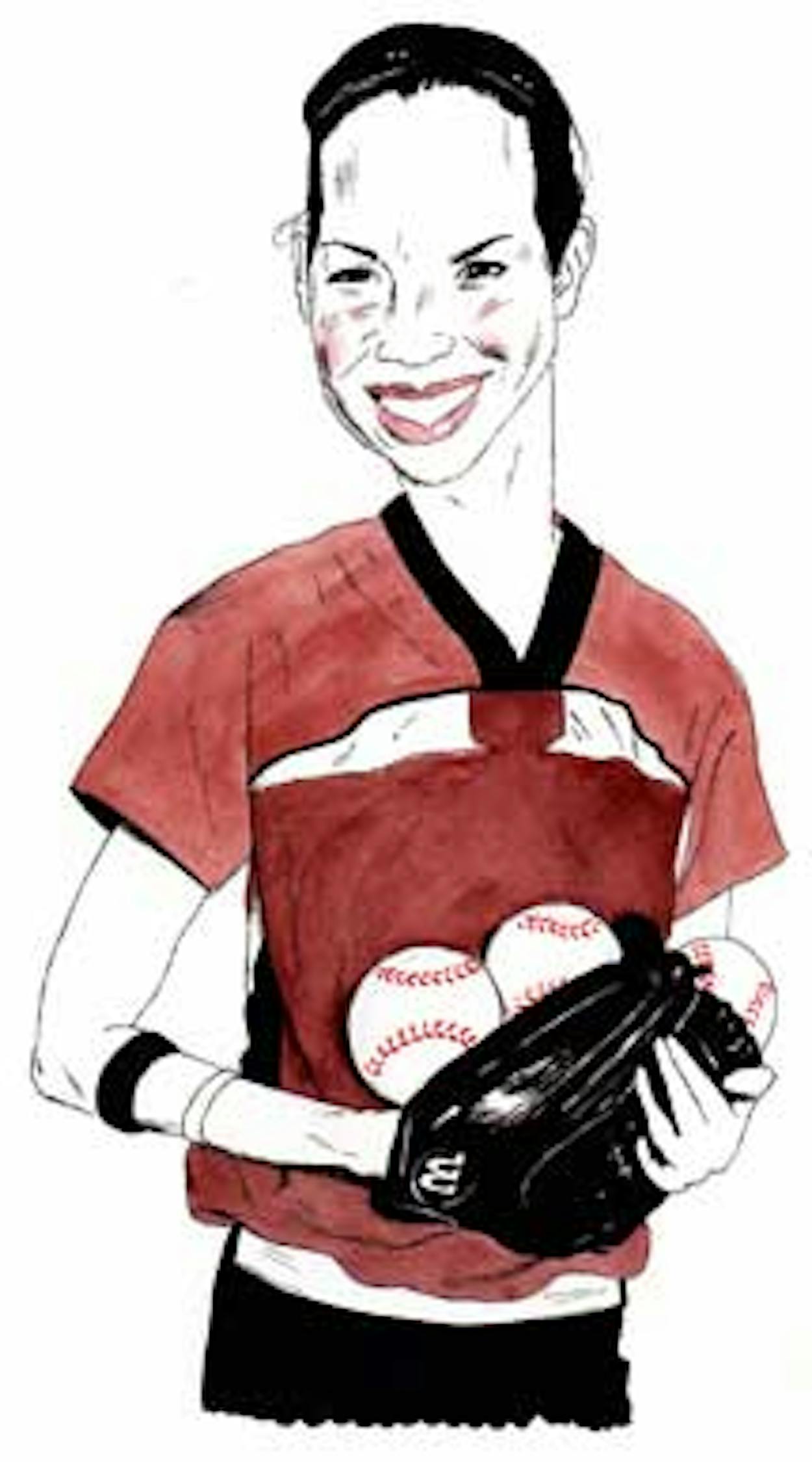The Cypress Springs High School grad’s résumé at UT-Austin was almost unbelievable. Eighty-two complete-game shutouts? Seventy-nine and two thirds consecutive innings without an earned run? Twenty strikeouts in a single seven-inning game? No player had won the USA Softball Collegiate National Player of the Year more than once; Osterman did it three times. When her country called in 2004, she helped lead the national team to Olympic gold. And by the time she graduated from UT last spring with a degree in psychology, she had appeared on the Big 12 All-Academic team three times and twice received the V.F. “Doc” Neuhaus Endowed Presidential Scholarship, the Women’s Athletics Department’s highest honor. But even with these accomplishments, she knows that her greatest impact is on the next generation of female athletes, who are cheering, “I want to be like Cat!”
You’ve signed on as an assistant coach with the DePaul Blue Demons, in Chicago. But you’ve also joined the National Pro Fastpitch league with the Rockford [Illinois] Thunder, and you’re on the 2008 U.S. Olympic team. How is all of that possible?
The NPF and the national team work together, so if I have an event that overlaps, our owners know that I’m obligated to leave. As for coaching, I wanted a change of scenery, but DePaul hired me knowing I wouldn’t be there a lot. It has been a good situation. But the national team definitely takes precedence.
You appear to be handling the transition from college well.
It’s funny, actually. I always swore up and down that I would coach for the rest of my life, but I’ve learned that I might want to have a quote-unquote real job that doesn’t have anything to do with softball. I’m interested in doing charity work, and I’d love to move back home and open my own branch of Girls in the Game, which helps girls play sports so they can learn life lessons.
For a certain generation of young girls, the inspiration was Nancy Lieberman; today it’s you. Are you comfortable with your status as a role model?
I guess you could say I got used to it. As I got older, I realized the impact I had on young girls. It’s the coolest thing when a kid says, “I took up pitching because of you” or “I wear number eight because of you.” That’s an awesome feeling, because when I was growing up, I didn’t start pitching because of anyone. And I didn’t wear number eight because of anyone.
How do you think the playing field looks for girls?
The worst that it could be is that it stays the same. Things are great today. I just watched the women’s national championship in volleyball on television. That wasn’t always on. Girls are getting more respect, and as long as the media keep putting it out there, people are going to keep responding by giving girls more and more opportunity.
And you’re seeing that in other areas as well. You’ve done commercials for Under Armour, which has a line of athletic gear and clothes for women now. Has the market caught up to the demand?
A lot of companies are doing that. Nike was ahead of everybody, but they’ll admit that for a while they did “pink it and shrink it” to make women’s clothes. That was their classic phrase. Now they go out and talk to women and see what they like and get feedback. The clothes look really good, but they fit our hips. Women want something that’s made for them—not to have to tailor a guy’s clothes. That will make a lot of girls happy.







